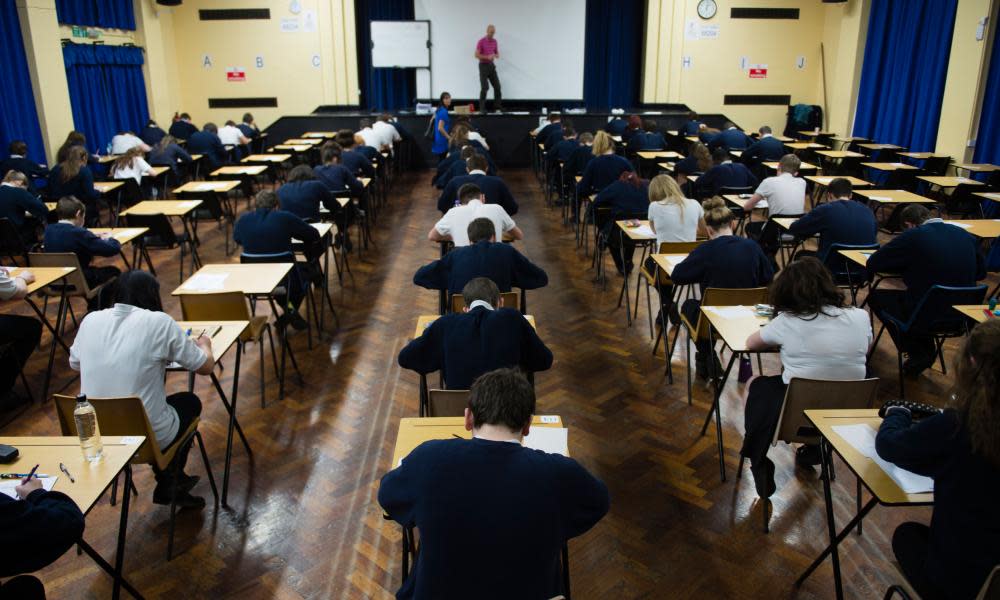Our ideologically driven curriculum fails the test

No one who knows anything about education – a category that rarely includes government ministers – could disagree with the main thrust of your editorial (The gap between rich and poor pupils is not the only thing wrong with GCSEs, 12 February).
In particular, you are right to point out “the inadequacy of a whole mode of thinking about education, according to which anything that cannot be audited can appear virtually without meaning”.
However, it is simplistic to imply that this sterile philosophy can be laid at the door of Michael Gove and Dominic Cummings. Destructive as this ignorant duo have been, the philosophy underpinning their ludicrous behaviour can be traced all the way back to Kenneth Baker’s 1988 Education Reform Act, which first introduced the idea that market forces, as expressed in the operation of parental choice, would be the key to raising standards.
This idea – unchallenged by any subsequent education secretary – has been a disaster: not only have standards not been raised in any meaningful way, but the belief that education is a public good which benefits society as a whole has been largely abandoned and replaced by the idea that the purpose of education is to benefit some children at the expense of others, according to how well their parents are able to compete for resources. After 150 years of state education, this is a very sad state of affairs.
Michael Pyke
Campaign for State Education
• Why we still need an examination for 16-year-olds rooted in the old grammar school tradition and originally intended to facilitate entry to higher education, when the effective school leaving age is now 18, and approaching 50% of the age cohort go on to university, quite eludes me.
We have had a comprehensive system of secondary education for decades now, yet we have failed to develop a comprehensive curriculum which enables all school students to develop their skills, talents and interests to the full. Instead, ever since Baker’s Education Reform Act, we seem to have moved backwards, ever narrowing the curriculum, and with assessment approaches that are almost designed to fail the majority.
What is needed is a thoroughgoing reform of the secondary curriculum with a greatly increased emphasis on creative, practical, performance-based activities, such as drama, design and technology, sports, and the performing and plastic arts, alongside the more traditional academic and cultural pursuits in the humanities and sciences. A diploma such as that advocated by the Tomlinson report should replace A-levels.
Such a curriculum would not only be more motivating for a wide range of learners but also a far better preparation for adult and working life for all. A tasty feast, rather than a thin gruel.
Roy Boffy
Former senior adviser for further education, Dudley LEA
• In the school where I am a governor around 50% of the pupils are classified as disadvantaged. Their futures are being trashed by the constrained curriculum which has developed under the Conservatives. It is clear that, since 2010, education policy has been driven by the education experience of the minister in charge; where they went to school and the examinations they took.
The government’s strategic vision is not based on the outcomes for pupils, nor the economic needs of the country. For example, the creative industries employ tens of thousands across all media, so Gove devalued them.
Technological advances are not reflected in the curriculum. Children should be taught how to research and problem-solve. The critical environmental issues are not reflected in the curriculum: children learn out-of-date biology, elementary physics and chemistry, none of which will address the climate crisis. Education should keep up with the times.
Linda Karlsen
Whitstable, Kent
• Join the debate – email guardian.letters@theguardian.com
• Read more Guardian letters – click here to visit gu.com/letters
• Do you have a photo you’d like to share with Guardian readers? Click here to upload it and we’ll publish the best submissions in the letters spread of our print edition


